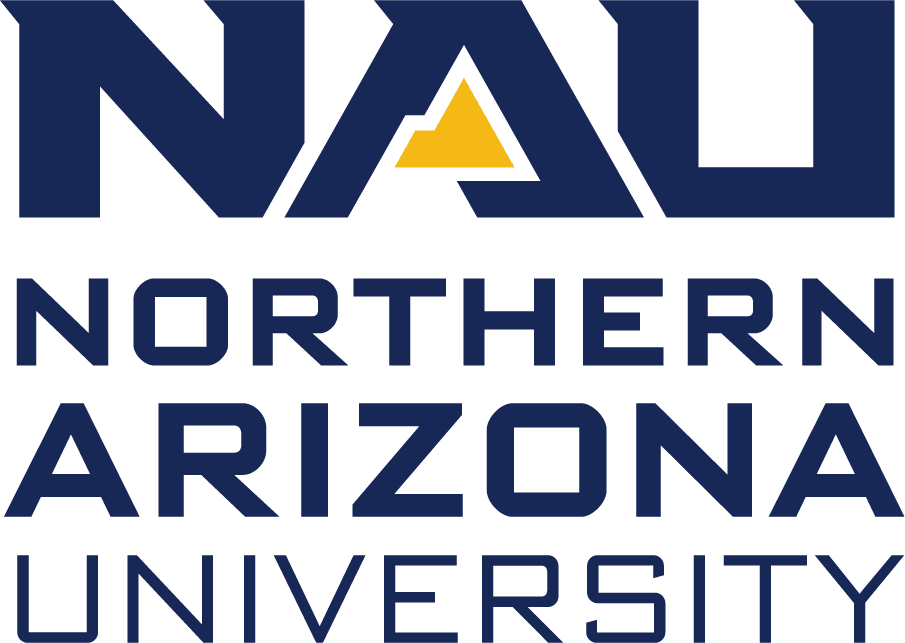Haley Moore thought she knew a lot about substance use disorder. While serving as an emergency medical technician for American Medical Response, she frequently treated patients who were struggling with psychiatric and physical conditions related to alcohol, narcotic and methamphetamine use.
But this winter, the NAU master’s student learned even more about how to treat substance use disorder—and about just how crucial that knowledge can be for any healthcare provider in Arizona.
Working with patients from Native American reservations, low-income households and other underserved communities at a Resource Healthcare addiction clinic in Phoenix, Moore learned that “if you’ve never worked with patients who face these issues, you probably haven’t spent time thinking about the resources some people don’t have.
“You can’t always tell the patient, ‘Go home and do this,’ because they might not have a home or certain resources,” Moore said. “You can’t assume they have a cool, dry place to store medications. You learn to be really resourceful, to take an extra step back and think more critically about how to treat the whole person, not just one medical aspect.”
Moore is part of the first NAU physician assistant studies cohort to receive specific substance use disorder training, thanks to an $898,779 grant from the Substance Abuse and Mental Health Services Administration (SAMHSA). The grant isn’t just funding three years of training for PA students. It’s also kickstarting Project ECHO, a virtual learning series that will help provide all Arizona healthcare providers with more information about substance use disorder and other issues that disproportionately affect patients in rural and underserved communities.
Jacob Gubler, the grant’s principal investigator and an associate clinical professor at NAU, said substance use issues have hit Arizona especially hard because so many Arizonans live in rural areas with limited access to hospitals and clinics. According to American Addiction Centers, the opioid overdose rate is 45% higher in rural communities than in cities, and alcohol abuse also tends to be more prevalent.
Substance use disorder also disproportionately affects Native Americans, who make up about 6% of Arizona’s population. The 2018 National Survey on Drug Use and Health reported that 7.4% of Native American adults ages 18-25 used opioids compared to 5.5% of adults in the general population, and they’re at increased risk of substance abuse due to lack of easy access to healthcare, poverty, housing problems, unemployment and other factors.
“The medical community’s prescribing practices led to an opioid crisis both here in Arizona and in the rest of the country,” Gubler said. “Substance use disorder is an illness of despair; it is especially pervasive in communities where there aren’t as many opportunities for employment or recreation. Even though some law changes have helped curb the rise of substance use disorder, it’s not going away anytime soon.”
That’s why Gubler, who has spent years working as a clinician on the Gila River Indian Reservation, was motivated to integrate substance use disorder treatment into every PA student’s education. As part of eight required clinical rotations, PA students now spend six weeks in clinics run by Community Medical Services, Neighborhood Outreach Access to Health, Circle the City and more, treating patients who struggle with alcohol, illicit drug use and prescription drug abuse.
Regardless of the career they pursue, the training will undoubtedly make the students better providers, Gubler said.
“This is an issue that really touches all healthcare workers, not just people who work in primary care or addiction centers,” he said. “Even if you work in, say, an orthopedic clinic, you’ll need to think about a patient’s history with substance use in order to give them proper treatment and care.”
Along with PA studies lecturer Adrienne Madhavpeddi, Gubler is leading Project ECHO, a partnership between NAU, A.T. Still University and Arizona State University that gives Arizona healthcare providers access to free tele-clinics that help train them to treat patients with complex needs in rural and underserved communities. The biweekly clinics, led by expert community partners, touch on topics like mental health treatment and substance use disorder. Plus, providers who attend can receive continuing medical education certifications from ASU—certifications they need to continue practicing.
“Even though our focus is on underserved populations, this training really translates to all communities,” Gubler said. “Substance use disorder affects people from all backgrounds. The knowledge gained through the clinical rotations, through Project ECHO—it can truly benefit everyone in healthcare, no matter where they are, no matter what their specialty.”
Jill Kimball | NAU Communications
(928) 523-2282 | jill.kimball@nau.edu




